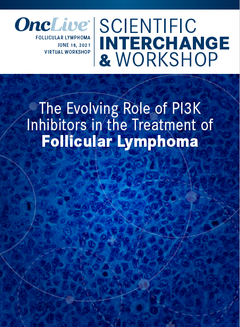
Dr. Leonard on the Future of PI3K Inhibitors in Follicular Lymphoma
John P. Leonard, MD, discusses the future of PI3K inhibitors in follicular lymphoma.
Episodes in this series

John P. Leonard, MD, The Richard T. Silver Distinguished Professor of Hematology and Medical Oncology, professor of medicine, executive vice chairman, Department of Medicine, senior associate dean for Innovation and Initiatives, Weill Cornell Medicine, attending physician, NewYork-Presbyterian Hospital, discusses the future of PI3K inhibitors in follicular lymphoma.
Novel PI3K inhibitors are currently in clinical development, says Leonard. Additionally, clinical trials are evaluating PI3K inhibitors in different dosing schedules, which could minimize toxicities associated with the agents, Leonard explains. Further study is needed to determine whether minimizing toxicity will result in improved efficacy because of fewer treatment discontinuations, Leonard says.
PI3K inhibitors are unlikely to play a significant role in the up-front treatment of patients with follicular lymphoma because of the adverse effects they can cause, Leonard says. Although they will remain in the relapsed/refractory setting, it would be beneficial to identify which patient populations are more likely to benefit from PI3K inhibitors vs others, as well as what combinations, beyond those with CD20-directed antibodies, are optimal in this patient population, concludes Leonard.






































